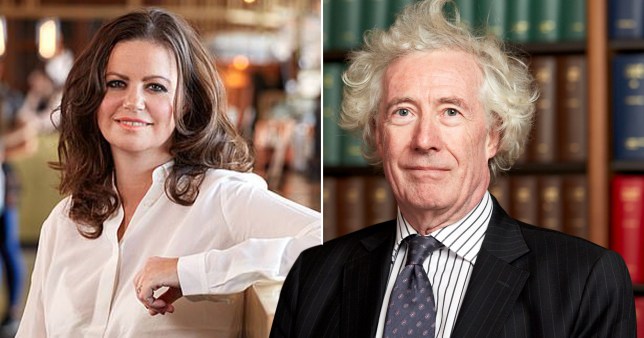
According to a statement made before the hearing in the case, the three companies spread misinformation about the election for years, apparently with the intent to influence or jeopardize the outcome of free and fair elections.
Frank Pallone Jr.
(D., N.J.), chairman of the House Energy and Commerce Committee.
Her Republican counterpart, Rep. Cathy McMorris Rodgers (R., Wash.), said through a spokeswoman that the COP wants to question CEOs about how they abuse their power to censor and control political speech with which they disagree.
Share your ideas
How do you think the oversight of technology companies will change in the next decade? Join the discussion below.
The hearing, scheduled for 12 p.m. Eastern time, is a new hearing for the supervisors. That would be the CEO of Facebook
Zuckerberg’s brand
This is the fourth appearance before Congress since last July and the third for both Twitter CEOs.
Jack Dorsey.
and Google’s
Sundar Pichai.
These earlier speeches showed that both sides are concerned about corporate power over American discourse and disagreement among lawmakers about how to combat that power.
In written testimony before a committee hearing Thursday, Zuckerberg said Congress should consider letting digital platforms obtain the legal immunity they have for hosting third-party content – a legal change that could affect a number of online businesses.
Zuckerberg proposed amending section 230 of the law, which states that platforms like Facebook are generally not responsible for what their users post.
Instead of immunity, platforms would have to prove they have systems in place to identify and remove illegal content, he said.
Zuckerberg’s comments on the subject are the most detailed. He had previously indicated a willingness to amend Section 230 more generally.
Democrats and Republicans worry that Section 230 gives big tech companies too much leeway to decide what information Americans get to see, even if the parties have different interests.
This law, part of the Communications Decency Act of 1996, encouraged social media by granting Internet platforms immunity from comments posted by users, critics, consumers, and others on their sites.
Government and technology leaders want to rewrite the law on the Internet. The WSJ explains how Section 230 has shaped the modern Internet and what lawmakers and tech executives want to change. Illustration photo: Carlos Waters/WSJ
Evan Greer, deputy director of the advocacy group Fight for the Future, said his group is against removing the 230 protections because it could have a devastating effect on small platforms and internet startups that don’t have the resources of the tech giants.
Of course Facebook wants to see changes in Section 230, Greer said. Because they know it will only serve to strengthen their monopoly power and stifle competition from smaller, more decentralized platforms.
Many Republicans feel that social media platforms remove too much content from Section 230, while Democrats feel that they don’t remove enough and allow malicious content to spread.
To date, these disagreements have prevented a consensus on amending Section 230, and no bill on Capitol Hill has made significant progress on the issue. For months, Facebook has publicly supported Internet rules as it came under fire for alleged antitrust violations and its content moderation practices.
Twitter and Google said they were open to discussions with Congress about legislative changes, but were less specific than Facebook about what changes to Section 230 they would support.
Big Tech’s deplatforming of former President Donald Trump has sparked a debate about the future of content moderation on social media. The WSJ talks to an expert on misinformation and moderation about what lies ahead.
Regulation plays an important role in ensuring that we protect the beauty of the open web, Pichai said in a pre-publication of his written testimony. We are concerned, however, that many recent proposals to amend Section 230, including calls for its complete repeal, are inconsistent with this objective.
In his opening statement, Dorsey said he agreed that technology companies must work to earn the trust of those who use our services.
His testimony did not mention Section 230, but he has already warned lawmakers that some of the proposed changes could end up benefiting large companies with budgets to work their way through a more complex regulatory framework.
Zuckerberg said the protection of Section 230 could depend on the ability of companies to follow best practices in combating the distribution of such content, citing illegal content.
Platforms should not be held responsible if certain content escapes detection, which would be impractical for platforms posting billions of messages a day, but they should be required to have adequate systems in place, he added. He stated that an appropriate system could be determined by a third party and could be proportionate to the size of the platform.
Email Ryan Tracy at [email protected].
Copyright ©2020 Dow Jones & Company, Inc. All rights reserved. 87990cbe856818d5eddac44c7b1cdeb8
Related Tags:
big tech ceos face disinformation,tech ceos lawmakers disinformation,big ceos lawmakers disinformation,tech ceos face lawmakers disinformation,big tech face lawmakers,big tech face disinformation,Privacy settings,How Search works,slashdot,tech face lawmakers disinformation


